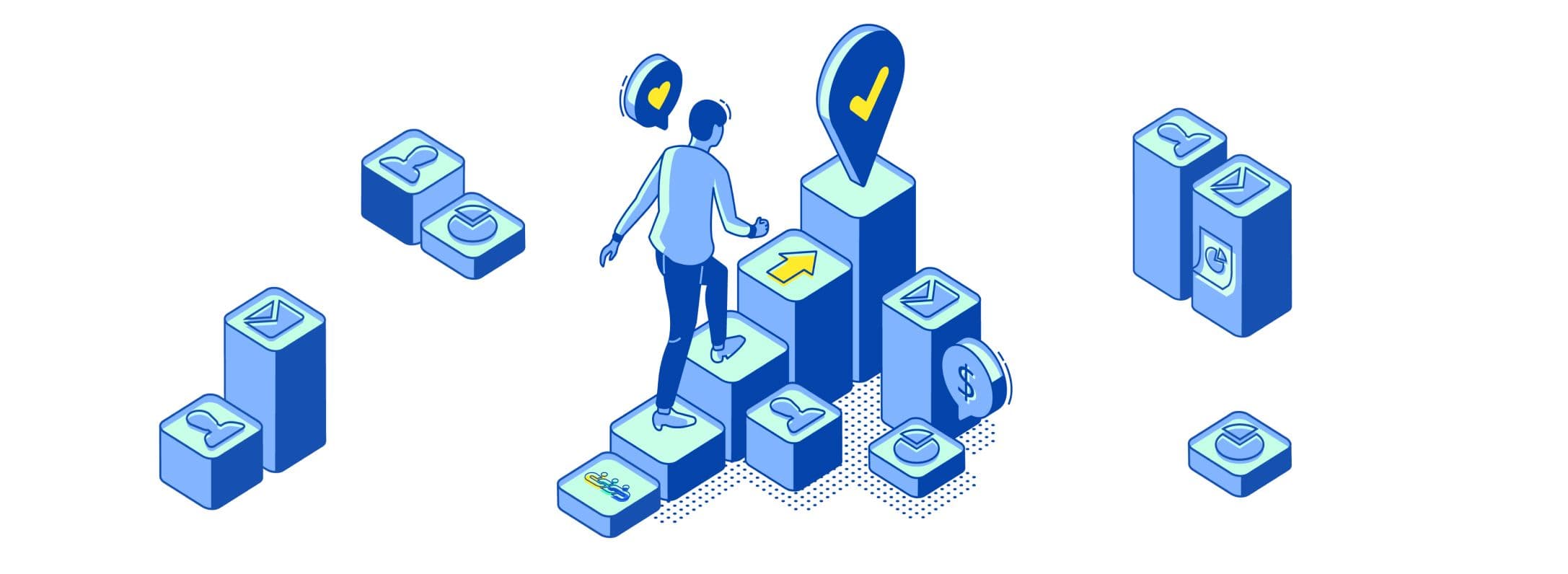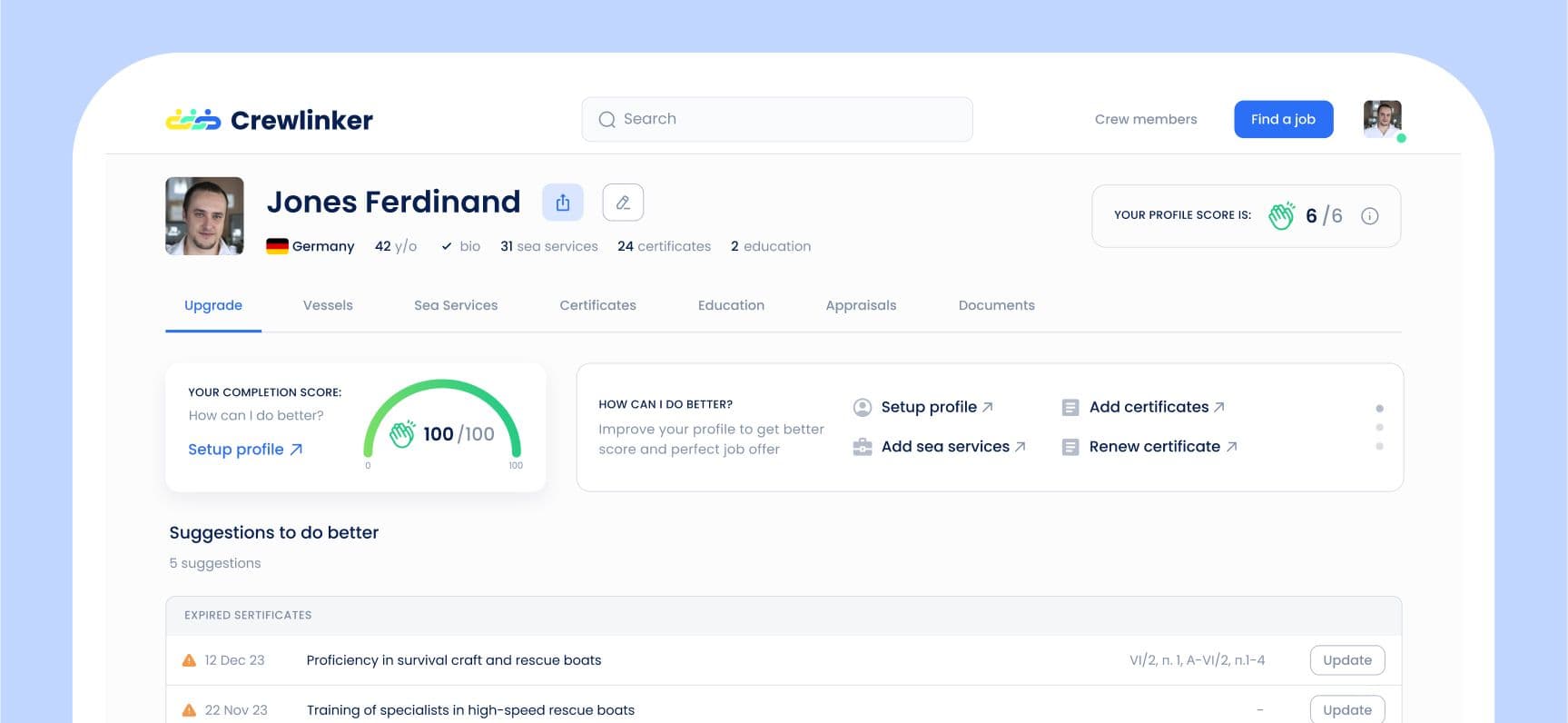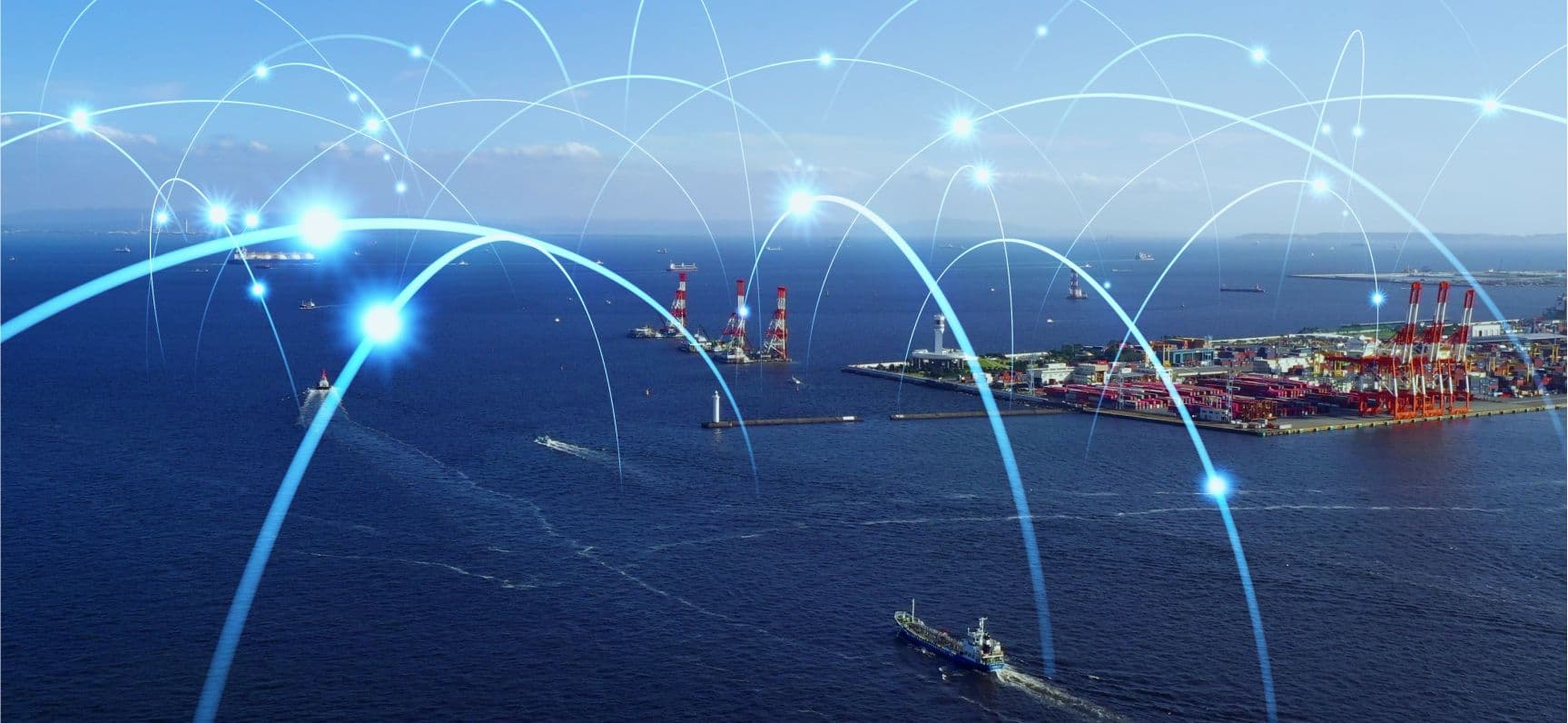Niayesh Sadrzadeh
Content Marketing Manager

What You Should Know When You Graduate as a Seafarer
Have you just been graduated as a seafarer? After all those years wherein you’ve gathered a lot of technical and nautical knowledge, you are now ready to go out to sea. But first, you need to find a (first) sea job. To help you kick-start your career, we have your Crewlinker profile and some additional tips in store.
1. Make your Crewlinker profile
The very first thing you can do is creating your Crewlinker profile for free. In fact, this is already useful during your study period. It's never too early to present yourself. Creating your Crewlinker profile is the first step to get access to the maritime and offshore network. Think of it as a kind of ongoing career fair, but in the online environment.
Get access to the maritime and offshore network with your Crewlinker profile
Create your profile nowAlthough you are only at the beginning of your maritime career, you have more nautical experience than you may expect. You can already fill in your education and your certificates that we already preselected for you. Besides, you probably did some internships. Add them as sea services to your profile.

On top of your account, you have some space to tell something about yourself. Make sure you are not too personal. Instead, keep it professional. Tell employers where your strengths lie and what characterizes you as a seafarer. Once your profile is completed, you have a good starting point to reflect and start your maritime career as a seafarer.
2. Sit down and make plans

Let's sit down for a moment and reflect on what you have accomplished thus far. You've already several certificates, practical experiences, and most importantly, your nautical diploma. You can be proud of that. The next chapter is imminent. To be prepared, it’s important to set up a personal career plan. All you need is a pen, paper, and your Crewlinker profile.
Start by asking yourself questions. What skills do I have? That means, what am I good at? In what am I less good at? And very important, which activities on board do I like? Which shipping companies would I prefer to work for? What does my ideal service term look like? And why not, what is my dream sea job? And so on.
“When will you throw out your Crewlinker profile and to which company?”
Just write everything down that comes to your mind. Don’t worry, you're not the only one who isn't exactly sure what to do after finishing your studies. But you will be amazed by the enlightening effect that writing down your thoughts can have. List the answers to the above questions and other questions you still have in mind.
After, start setting deadlines. When will you throw out your Crewlinker profile and to which company? When are you going to call that experienced person for some inside information or advice? Which career fairs are on the agenda for the next year? Check if you can be there. Write these appointments down and tick them off little by little.
3. Immerse yourself in shipping companies

In case of applying for your first sea job, your Crewlinker profile is very helpful to convince operators and crewing agencies of your suitable capacities to match the vacancy concerned. Your profile is useful as it shows briefly why you fit the sea job. At the same time, your motivation will be important as well.
After a match with an operator or crewing agency, the real contact between you starts. You will have a job interview and you may have to write a motivation letter. "Immerse yourself in the company you are applying to and think about why you want to work for that specific company", advises Tjitso Westra, Senior Policy Adviser for Manning and Training at the Royal Association of Netherlands Shipowners.
“Think about why you want to work for that specific shipping company”
Tjitso Westra
Senior Policy Adviser for Manning and Training at the Royal Association of Netherlands Shipowners
"Students often write a motivation letter that is so general that they can send the letter to every operator and crewing agency they want", explains Jolie Seleba, consultant Onshore & Work2Learn at TOS Netherlands. "Companies have nothing to do with that. Sometimes people even forget to mention the name of the company."
"Write your motivation letter in English and specifically for the concerning internship or sea job", Seleba continues. "Add a personal, but professional, element in your motivation. Tell how you would apply your strengths in the position you are applying for." And in general, "preparing yourself well and being on time are the golden rules of an application", says Westra.
According to first engineer Dereck Frolich, an internship is a perfect manner to immerse yourself in a shipping company. "You will obtain the basic knowledge of a company", explains Frolich. He mentions the administrative actions, company culture, safety protocols, maintenance programs, and watchkeeping on board. "They can differ per shipping company."
4. Go network

Given that information, it's therefore useful to stay at the company where you did your internship. "It saves time, pressure, and stress. And it is more difficult for beginning seafarers to switch companies than for an experienced seafarer", says Frolich. "Choose therefore an internship at a shipping company you expect to want to stay and ask clearly whether there are opportunities to work there in the near future."
Concerning finding an internship, "the world is quite small", says Frolich. You will always find someone who has worked for a certain operator. Ask acquaintances and classmates what the ins and outs are within such a company." And to increase your chances to stay after your internship, "make sure you're putting in the effort and being committed. There are so few people on board already."
“Share your Crewlinker profile with shipping companies in pdf or via your profile link”
Haven't you found a suitable internship yet? Or do you want to work in a different direction or for another shipping company? No worries, there are career fairs to visit where you can meet operators and crewing agencies who are eager to meet graduated nautical students like you. It's a manner to immerse yourself in maritime companies and to show your added value and knowledge about certain companies.
Crewlinker is developing as a kind of career fair in the online sphere. Your profile attracts operators and crewing agencies to join the Crewlinker network. Soon, when it will be possible for them to join Crewlinker, you can start contacting them. Until then, share your profile in the downloadable version when applying for an internship or sea job and via your profile link to invite the companies to the platform.
5. Another lifestyle

Once at work as a seafarer, there are some things you should keep in mind. Whatever industry you start working in, you can feel overwhelmed. "The offshore industry is quite a tough world", says Seleba from TOS Netherlands. “One must be sure of oneself. Just do your job well.” Once you get to know the characteristics of the maritime industry, you will feel more at ease.
“You choose a lifestyle”, says Westra. "It's not a 9 to 5 job". Work schedules have to be continuously adapted to the operation of the ship. It could also be that you are having time off, but are suddenly called up to address an unexpected event. Frist engineer Frolic tells from his own experience: "Sometimes you are on board for 2 or 3 months." You will encounter emotions like homesickness. "You have to handle that."
"On board, you work seven days a week, but you will get the Saturdays and Sundays compensated as days off during your leave. Two months of sailing may result in one month of leave. This offers excellent travel possibilities or a lot of quality time with family", explains Westra. "You are really free during your free time."
“As a seafarer, you need to be a team player with a problem-solving character”
Tjitso Westra
Senior Policy Adviser for Manning and Training at the Royal Association of Netherlands Shipowners
Something crucial to consider for seafarers are the ad-hoc changes. Westra tells: "Unexpected things can happen, for example having to sail in bad weather or encountering delays. "Shipping companies are looking for a problem-solving attitude, as seamanship requires adaptive seafarers who can solve situations with unlimited dedication and sometimes limited means available. There is no time to wait or discuss. As a result, your work may occasionally run late."
Seafarers quickly get a lot of responsibilities on board. "Especially when the shipping companies are small organizations", explains Westra. He says that the responsibility is challenging but also satisfying. "As a seafarer, you get immediate results. With your team, you ensure that a technical company runs without problems. That's challenging in a positive way."
Other things you will have to get used to are for example the hierarchy between the staff on board. "You will be treated differently from permanent employees on board", says Jolie Seleba from TOS Netherlands. At the same time, you will be an important link in a large chain, regardless of your position. It is therefore very important that you are a team player.